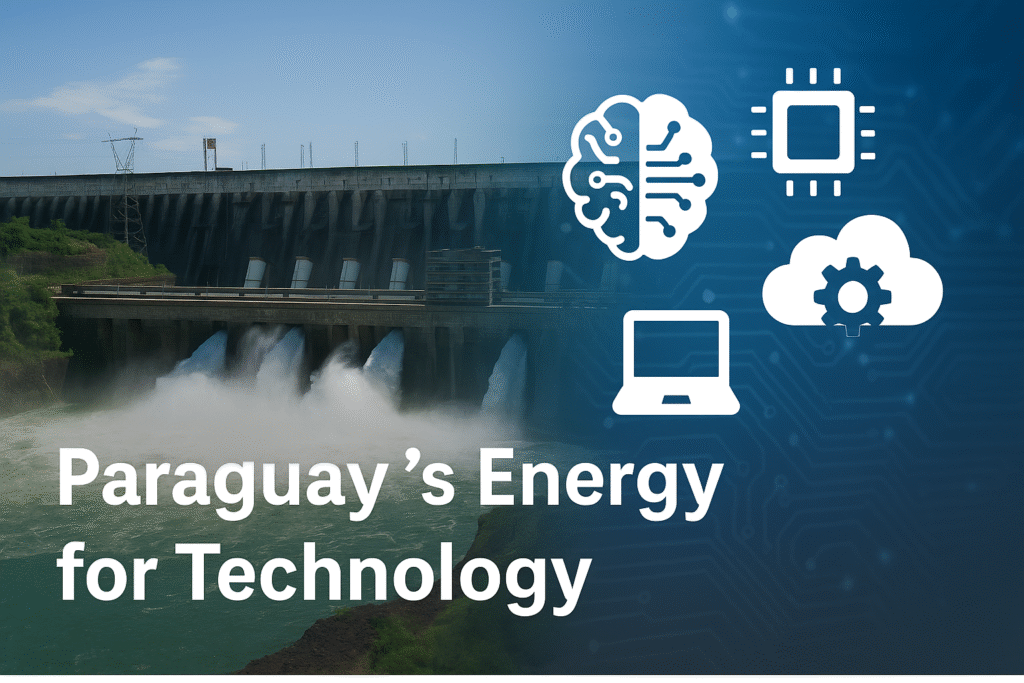
As the world races toward a future defined by artificial intelligence, renewable energy, and high-tech manufacturing, a small landlocked nation in South America is quietly positioning itself as a global player. Paraguay, long overshadowed by its larger neighbors, is emerging as a strategic hub for clean energy, data infrastructure, and geopolitical alliances.
At the heart of this transformation are two key forces:
- An abundance of low-cost, clean hydroelectric energy, particularly from the Itaipu Dam.
- Deepening international partnerships with Taiwan, Japan, and now even rising interest from the United States.
⚡ Energy That Powers the Future
Paraguay’s Itaipu Dam, co-owned with Brazil, is one of the largest hydroelectric power plants in the world. With a population of just 7 million and limited domestic energy consumption, Paraguay regularly produces a surplus — exporting most of it to Brazil under the Itaipu Treaty.
However, with the recent expiration of the treaty’s Annex C in 2023, Paraguay is seeking to re-negotiate energy prices and partnerships, and to diversify its energy clients.
This caught the attention of U.S. Secretary of State Marco Rubio, who in a 2025 Senate hearing described Paraguay as a potential ideal host for AI infrastructure. With clean, affordable energy becoming one of the most valuable assets for powering data centers, AI training models, and crypto mining, Paraguay’s energy surplus has become strategic.
🌐 Tech Diplomacy with Taiwan and Japan
President Santiago Peña has actively pursued a foreign policy of technology-driven partnerships, particularly with Taiwan and Japan.
In a recent visit to Taiwan, Peña reaffirmed the country’s diplomatic loyalty — Paraguay remains the only South American country that maintains official relations with Taipei. Together, they are advancing the Taiwan-Paraguay Polytechnic University (UPTP), aimed at training engineers and tech specialists. Taiwan has also shown interest in semiconductor manufacturing projects in Paraguay, citing its energy stability and pro-investment environment.
Meanwhile, Peña’s state visit to Japan in May 2025 led to the elevation of bilateral ties to “strategic partnership” status. Japan pledged $240 million in infrastructure loans and introduced visa waivers for short visits, a gesture signaling deeper cooperation in trade and technology.
🤝 A Strategic Shift in the Americas
Paraguay’s appeal is clear:
- 10-10-10 tax system (10% VAT, income, and corporate tax)
- Abundant green energy
- Access to MERCOSUR markets
- Stable democratic governance
- Geopolitical neutrality
It’s no surprise that countries like Taiwan, Japan, and now the U.S. are increasingly interested.
But there’s also a broader geopolitical play here. As China expands influence in Latin America, Taiwan’s alliance with Paraguay gains symbolic importance. Recently, a Chinese envoy was expelled after pressuring Paraguay to drop Taiwan — an act the Peña administration rejected firmly.
🚀 A Hub in the Making
If Paraguay can channel its energy surplus into digital infrastructure, high-tech manufacturing, and sustainable development, it may become South America’s unlikely tech capital.
The next frontier may not be in Silicon Valley — it could be in Asunción.
And for a country that has long been overlooked on the global stage, that’s a quiet revolution worth watching.